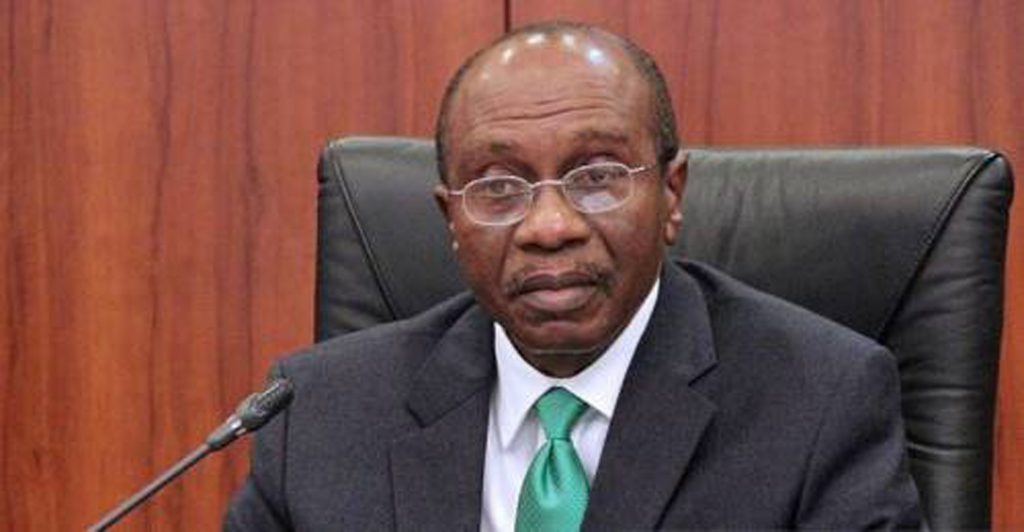By Akanimo Sampson
The Central Bank of Nigeria (CBN) has granted, from March 1, a one-year moratorium on all of its intervention funds.
The CBN Governor, Godwin Emefiele pointed out that the policy measures are to tackle the impact of coronavirus on the businesses and the country’s economy.
The apex bank through the Deposit Money Banks has provided a total of N3 trillion to the Small and Medium Enterprises sector of the economy.
This is as Lagos State Ministry of Health has confirmed that a 30-year-old Nigerian female who returned from the United Kingdom on Friday, 13 March 2020, observed self-isolation, developed symptoms and has been tested positive.
The one-year moratorium on all of its intervention funds is, however, the second good news since the outbreak of the coronavirus.
In February, news of the outbreak in China helped in no small measure to push the Food and Agriculture Organisation (FAO) Food Price Index down.
The cheery news came as higher maize outputs in West Africa and Ukraine affected cereal supply and demand. Its estimates for 2019 world production is expected to hit 2 719 million tonnes.
FAO forecasts world trade in cereals to rise by 2.3 percent to 420 million tonnes in 2019/20, the second-highest level on record, with wheat shipments accounting for more than half of the expected increase.
Interestingly, world food prices declined in February for the first time in four months due to a sharp fall in the export prices of vegetable oils, partly driven by fears that the coronavirus (COVID-19) outbreak will slow global demand.
In the meantime, loans are given through the Commercial Credit Guarantee Scheme and the Anchor Borrowers Programme, among others.
Emefiele also says the bank has agreed to reduce the interest rate on all of its intervention funds from 9% to 5% for a one-year period, effective March 1 this year.
The CBN governor equally says the apex bank will create a N50 billion credit facility to boost the economy.
The fund, according to Emefiele, will be disbursed through the NIRSAL Microfinance Bank for households and SMEs that had been particularly hard hit by Covid-19.
The credit will also be extended to hoteliers, airlines, service providers, and health care merchants, among others.
Emefiele, however, says the one-year moratorium was granted to reduce the burden of loan repayment by businesses.
This means that any intervention loan currently under moratorium has been granted an additional one-year period.
Consequently, participating financial institutions have been directed to provide new amortisation schedules for all beneficiaries.
To meet the potential increase in demand for healthcare services and products, Emefiele says CBN has opened for its intervention facilities to pharmaceutical companies intending to expand their drug manufacturing plants in Nigeria.
Adding, he said the facility will also be extended to hospitals and healthcare practitioners intending to expand or build first-class health centres.
He also announced a regulatory forbearance measure for the banking sector, pointing out that this will grant all the DMBs leave to consider temporary and time-limited restructuring of the tenor and loan terms for businesses and households most affected by the outbreak of Covid-19.
The major sectors that will enjoy this forbearance are oil and gas, agriculture, and manufacturing.
In view of the success so far recorded in the Loan to Deposit Ratio policy in growing credit to the economy and reducing interest rates, the CBN chief says the bank will further support industry funding levels to maintain the DMBs capacity to direct credit to individuals, households and businesses.
Emefiele said through the LDR, about N2 trillion credit has been unlocked by the CBN to the economy.
“We will also consider additional incentives to encourage the extension of longer tenor-credit facilities. The DMBs are encouraged to continue to build capital buffers in order to improve the resilience of the sector.
“The CBN in furtherance of its financial stability mandate is committed to providing support for affected households, businesses, institutions, and other stakeholders in order to cushion the adverse economic impact of this (coronavirus) pandemic,’’ he adds

